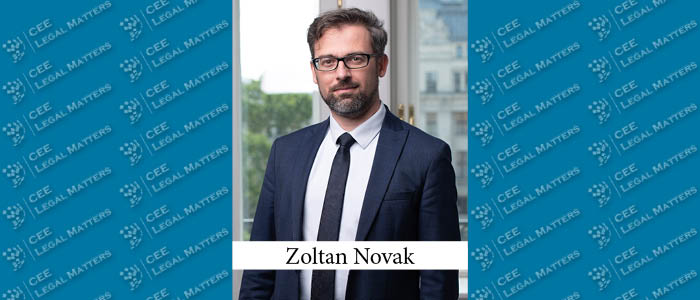ESG legislation changes in Hungary are reshaping corporate practices and legal counsel roles, according to Taylor Wessing Partner Zoltan Novak. "Green claims" and expanded reporting obligations, even beyond finance, demand precise compliance, and lawyers in Hungary now play a pivotal role in navigating this evolving ESG landscape, ushering in a new era of corporate responsibility.
"ESG legislation that is constantly being developed and introduced at an EU level is the talk of the town," Novak begins. "The implementation of these changes leads to several interesting aspects that make this a very hot topic in many respects of the law, and how the law is applied for corporations and companies," he says.
Specifically, Novak highlights "green claims." Here, he says that "the main aim of the legislation coming from the EU is to devise a framework in which companies can advertise their products. From the perspective of lawyers, this means advice on advertisement law and trade law," he explains. "In the past couple of decades, the environment-friendliness of products has become a selling point, and this development has now reached the point where it is coming under strict legal regulation."
When it comes to financial products, Novak says that "the relevant EU legislation has already been introduced for some years. If you are an investment firm setting up a 'green fund' – a fund that aims to invest in climate-friendly projects and investments – calling it a green fund has already been subject to serious scrutiny at the EU level." What is about to change, is that such "green claim regulations will extend beyond the financial sector, meaning that companies marketing standard consumer products, in or outside the store, will also be subject to such regulations. A relevant directive has already been proposed by the EU, which will be adopted in the course of this or next year," Novak divulges.
The legislation, according to Novak, defines "when products can be marketed as being environmentally friendly. EU legislation defines in a closed list which products can be considered climate-friendly. One of the categories is 'climate mitigation,' and a product can only be framed as such if it uses renewable energy or contributes to so-called 'carbon sinks' – a climate science term," underscoring how "climate science has entered the legal discipline in a very impressive manner."
Also on the ESG front, there is another important development dealing with corporate reporting obligations. According to Novak, publicly listed corporations already have to "include in the annual report a detailed account of what they have done to mitigate climate change and increase sustainability. But right now, this obligation is being extended, and a new directive will have to be implemented by member states by next year. It will still not apply to all undertakings — only to large ones," he explains. "Still, this will be a major expansion of corporate reporting obligations — it will be much broader than before." In conclusion, reflecting on all of the updates, Novak says that the "legislation now puts such a heavy burden that lawyers with a deep understanding of sustainability matters will need to be involved in the decisions of companies, dealing with ESG issues — a new type of lawyer is emerging."

















